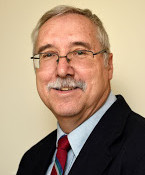[Opinion] Riding Israel's Political Roller-Coaster
[EXCERPTS]
Israelis recently woke up to the news that Prime Minister Benjamin Netanyahu was bringing his longtime adversary, Avigdor Liberman, back into the government, this time as defence minister. Although once close partners, the two alpha males had become bitter rivals, slinging insults at each other, and Netanyahu was courting Labor Leader Isaac Herzog as a potential partner to fill the gap in his governing coalition. But that effort, which would have weakened the right and moved Israel’s government toward the centre, with Herzog as foreign minister, failed, and Liberman and Netanyahu suddenly became best friends again, or at least political allies.
These machinations reflect the state of perpetual political crisis in Israel, which extends to issues far beyond borders, relations with the Palestinians, religious conflicts and economic issues. This crisis is the result of a dysfunctional political system, sharp internal divisions and an ongoing leadership drought.
As a result, Israeli commentators and political observers often return to scenarios in which popular former military leaders suddenly leap to the top of a major party, followed by a quick electoral triumph. In addition to Yitzhak Rabin, Ehud Barak took this route as the head of Labor in 1998, although his brief run as prime minister was not particularly successful. But enough time has passed, and a number of ex-generals are viewed as potential successors to Netanyahu, allied with Likud exiles or a centrist party pulling in alienated voters from the two ideological poles.
But unless or until this happens, and probably for long afterward, Israel’s political roller-coaster is likely to continue.

